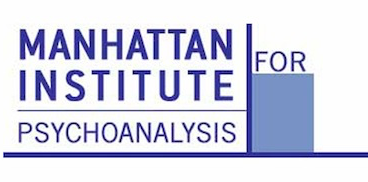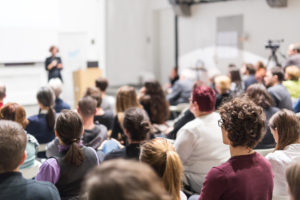The Eyes Have It: Facing My “Unseen Known”
by Wendy Greenspun, Ph.D.
As waves of horror in the aftermath of George Floyd’s death washed over the pandemic-stained summer of 2020, I became aware of my limited vision. Though I’d always prided myself on sensitivity and awareness of race, I finally realized the myopic nature of my lens of whiteness. It was time to fully open my eyes.
Joining the CORE Dialogues group was like receiving new glasses. In this group of courageous colleagues, I have encountered aspects of my blindness to the constant pain, fear and erasure experienced by people of color—in the world, in our institute and in the Dialogues group itself. I began to recognize how my failure to see turns into complicity. I encountered my tendency to deflect and not expose my difficult and confused feelings in the group, fearing the shameful aspects of my (disavowed) racism or potentially angering others. I struggled to emerge from the privilege of hiding.
A racialized enactment helped me to come forward: I remembered the moving words of a white member in the previous group meeting, while the painful and heartfelt narrative of a Black colleague disappeared from internal view in a dissociated fog. This unconscious deletion exposed my racial cataracts and left me horrified, humbled, enlightened. Ta-Nehesi Coates reminds us: “Racism is a visceral experience… (It) dislodges brains, blocks airways, rips muscle, extracts organs, cracks bones, breaks teeth. You must never look away from this.”
My opened eyes brimmed over with tears.
Wendy Greenspun, Ph.D., is a graduate of the Certificate Program in Psychoanalysis at the Manhattan Institute, as well as faculty and supervisor at MIP and in the Adelphi Postgraduate Program in Marriage and Couple Therapy.
Reference:
Coates, T. (2015). Between the World and Me. New York: Spiegel and Grau.
Staying is Everything
by Roberto Colangeli, Ph.D., L.P.
I joined CORE Dialogues in the summer of 2020, after George Floyd’s murder. Allow me to first back up and offer a sense of my own personal history for context.
Born and raised in Italy, I grew up with no direct exposure to any people of color. My friends, family, the schools I attended, all through the university years—everybody had always been white. Racism was something we studied in school and watched at the movies; something that seemed very painful and real, but was far removed from my immediate experience. I never had to face or become aware of the true violence of racism until I moved to this country. I spent years trying to integrate into a different culture—learning a new language and struggling daily with whether to stay or to go back to Italy. Even though I was aware of them, I confess that racial issues took a back seat in my life during my more challenging years of assimilation.
Slowly, in the years following my decision to remain in this country, racial inequality became impossible to ignore. I worked in the field of biology, made up of people from all over the world, from different backgrounds and ethnicities, which helped me become aware of the immediate effects of inequality. Eventually I developed friendships with many US-born people of color, putting racial tensions and identity into sharp focus as a constant, obvious issue. Thanks to these relationships, and my witnessing of their experiences, I became more aware of the impact of white supremacy, white entitlement, and white privilege, and I began to shift my attention away from the racial injustices of the external world toward my own personal role as a white man upholding the status quo in my world. Psychoanalytic training has directly affected my awareness of social and racial inequalities. I started to read psychoanalytic papers, attend conferences, and watch documentaries about racism in this profoundly divided country. As a part of my requirements for analytic training, I attended a class at MIP about racial inequality and discrimination which further helped me get in touch with my own personal and historical bias as a white man and how that affects my interactions with people of other ethnic and cultural backgrounds, all having had experiences so different than my own.
After the gruesome murder of George Floyd, I joined the Black Lives Matter movement and marched in the coalition of people from many different ethnicities in protest of police brutality and racial discrimination specifically against black lives. Despite my increasing interest and participation in racial justice, something was missing—a space where I could share my feelings, ask questions, and interact with and experience the narratives of other people.
And then I learned about CORE Dialogues. Joining Dialogues was easy; engaging and experiencing the dynamics within the group was anything but easy. I was not prepared (at all) for the intensity and overwhelming emotions that would rise up within myself and in the group. For the first few meetings, I was unable to get in touch with my emotions during group conversations. I had no idea what was happening within me or the group, and knew even less how to interact with my colleagues. I felt lost and began to wonder if Dialogues was the right place for me. But I stayed, and in time that confusion diminished. It became easier to follow the thread of the conversations and I became more familiar with—and had greater tolerance for—my own and the group participants’ feelings. With more clarity and understanding, an intense multiplicity of fear began to emerge: fear of being recognized as an entitled white man; fear of being a racist after all; fear of saying the “wrong” thing (not even fully understanding what “wrong” really meant); and most importantly, fear of hurting others. This overwhelming compounded sense of fear resulted in total paralysis and an inability to speak. Heavy silence was the only safe place to hide, to be.
Again I felt lost, and wondered if Dialogues was the right place for me. But again I stayed, and in time my immense fear became lighter and more manageable. I also became more comfortable and aware of the group’s ability to hold and tolerate my whiteness and my clumsy attempts to navigate an unknown sea. At the same time, I trusted my ability to withstand comments, criticisms, and maybe even anger—from myself and others. I began to speak. Finally opening up, interacting, relating and becoming vulnerable felt good. I did not feel alone; I did not feel judged. The result of my staying was an ever deepening understanding of others, of myself, and, consequently, the development of true intimacy.
Vulnerability comes at a price: you can get hurt, and you can be the one to hurt. On a few occasions, I have felt angry, invisible to others, ashamed, and defensive. The result of taking a risk and getting vulnerable has often led to a tempting desire to retreat into a more comfortable and secure silence. Again, I have been left questioning if CORE is the right place for me. Again, I have stayed. I will continue to stay and keep working to become more aware of the subtle and not so subtle intricacies of racial dynamics, my own personal biases, and the role I am blindly playing by reinforcing the walls of white privilege that continue to hold up our society when I am not taking conscious action to dismantle and rebuild them. I am not sure where our CORE Dialogues journey will take us, but I am happy to travel with the group wherever we might go.
Roberto Colangeli, Ph.D., L.P., is a graduate of the Manhattan Institute and clinical co-director of MIP’s treatment center. He is Assistant Professor in the Departments of Medicine and in Microbiology and Infectious Disease at Rutgers University, and he is licensed and in private practice in both New York City and in New Jersey.
Stay tuned for Spotlight on CORE: Part III: Contemporary Perspectives with Immigrants, Exiles and Refugees: The Influence of COVID-19 and the Silence of Others by Ruth Lijtmaer, Ph.D.
If you enjoyed this post, we recommend:
Spotlight on CORE: Part I featuring an interview with Rossanna Echegoyén, LCSW, and Chanda Griffin, LCSW
Using Psychoanalytic Understanding to Face Climate Change by Elizabeth Allured, Psy.D, and Wendy Greenspun, Ph.D.
A Journey into Climate Change Awareness by Wendy Greenspun, Ph.D.
The Whole is Greater than the Sum of Its Parts: The Complexity of Couple Therapy by Wendy Greenspun, Ph.D.
Feeding the Enemy: When Hatred and Racism Come Home by Roberto Colangeli, Ph.D.
Sexuality in the Consulting Room by Roberto Colangeli, Ph.D.








3 Comments
Leave your reply.